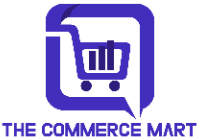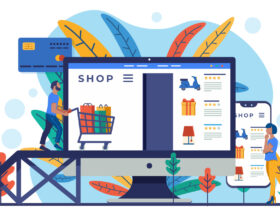Supply chain management has always been the backbone of retail. From sourcing raw materials to manufacturing, warehousing, and delivering products to customers, every step requires accuracy, transparency, and efficiency. Yet traditional supply chain systems are often plagued with inefficiencies, lack of trust, and limited visibility. Counterfeit goods, delays, data silos, and fraud remain persistent challenges for retailers worldwide.
In recent years, blockchain technology has emerged as a powerful solution to these problems. While initially associated with cryptocurrencies like Bitcoin, blockchain has expanded into various industries, with supply chain management being one of the most promising applications. By offering a decentralized, transparent, and tamper-proof system for recording transactions, blockchain is transforming the way retailers track, verify, and manage their supply chains.
This article explores how blockchain is revolutionizing supply chain management for retailers, the benefits it brings, the challenges of adoption, and what the future holds.
Understanding Blockchain in the Context of Supply Chains
Blockchain is essentially a distributed digital ledger that records transactions across multiple computers in a secure and transparent manner. Each record, called a block, is linked to the previous one, forming a chain of immutable data. This makes blockchain resistant to tampering, fraud, or unauthorized changes.
In supply chains, blockchain can be used to store and share information about products, shipments, and transactions among all stakeholders including manufacturers, suppliers, logistics providers, retailers, and customers. Unlike traditional centralized databases, blockchain ensures that everyone has access to the same verified information in real time.
For example, when a product moves from a factory to a distributor, the transaction can be recorded on the blockchain. The retailer can then verify the authenticity of the shipment, while customers can trace the product’s journey from source to shelf. This transparency builds trust, reduces disputes, and enhances overall efficiency.
Why Retail Supply Chains Need Blockchain
Retail supply chains are complex. A single product may involve dozens of suppliers, multiple international shipments, and several layers of distribution before reaching a store or customer. Traditional supply chain systems rely heavily on paperwork, emails, and isolated databases, which often leads to errors, delays, and lack of accountability.
One of the biggest challenges is the issue of counterfeit goods. According to global studies, counterfeit products cost retailers billions of dollars annually. Customers purchasing fake goods not only erode brand trust but also expose themselves to safety risks. Blockchain provides a way to authenticate products by recording every step of their journey on a tamper-proof ledger.
Another challenge is the lack of real-time visibility. Retailers often struggle to know where their products are at any given moment, especially when goods are shipped internationally. This lack of transparency leads to inefficiencies and higher costs. Blockchain enables real-time tracking and provides accurate information about location, status, and condition of shipments.
Finally, sustainability and ethical sourcing have become major concerns for customers. Modern consumers want to know whether their products are ethically sourced and environmentally friendly. Blockchain allows retailers to prove the origin and sustainability of their products, strengthening trust with conscious customers.
Benefits of Blockchain for Retail Supply Chains
Transparency and Traceability
Blockchain allows every participant in the supply chain to access the same verified data. Retailers can trace a product’s journey from the raw material supplier to the end consumer. This transparency ensures accountability at every step and makes it easier to identify inefficiencies or irregularities.
For instance, a coffee retailer can use blockchain to show customers exactly where their coffee beans were grown, when they were harvested, and how they were transported. This builds customer confidence and strengthens brand credibility.
Authenticity and Anti-Counterfeiting
Counterfeit products are a major problem in fashion, electronics, pharmaceuticals, and luxury goods. Blockchain provides a way to authenticate each product by assigning it a unique digital identity recorded on the blockchain. Customers can scan a code on the product to verify its authenticity instantly.
Luxury brands like LVMH have already started using blockchain to protect their products from counterfeiting. Retailers across industries can adopt similar strategies to safeguard their brands.
Efficiency and Cost Reduction
Traditional supply chains involve countless intermediaries and manual processes. Blockchain automates verification and eliminates the need for third parties to confirm transactions. This reduces paperwork, minimizes errors, and speeds up processes.
Retailers benefit from lower administrative costs, faster transaction times, and fewer disputes. Smart contracts, which are self-executing agreements stored on the blockchain, further enhance efficiency by automating payments and approvals once conditions are met.
Improved Inventory and Logistics Management
With blockchain, retailers can gain real-time insights into product movement and stock levels. This allows for better inventory management, reducing overstocking or understocking issues. Logistics partners can update blockchain records as goods move through the supply chain, ensuring accurate and timely updates for all stakeholders.
This level of visibility helps retailers plan better, avoid delays, and improve customer satisfaction by providing accurate delivery timelines.
Enhanced Sustainability and Ethical Sourcing
Consumers increasingly demand proof that the products they buy are ethically sourced and environmentally sustainable. Blockchain provides retailers with a transparent way to share this information. For example, apparel brands can show that their cotton is sourced from fair-trade farms or that their supply chains are carbon-neutral.
This transparency not only meets consumer expectations but also helps retailers comply with regulatory requirements related to sustainability and corporate responsibility.
Real-World Applications of Blockchain in Retail Supply Chains
Several retailers and brands are already experimenting with blockchain. Walmart has implemented blockchain technology to track food products like lettuce and mangoes, reducing the time it takes to trace the origin of contaminated goods from days to seconds. This helps ensure food safety and protects consumers.
IBM’s Food Trust platform is another example, bringing together major retailers and food suppliers to use blockchain for supply chain transparency. Luxury brands such as Cartier and Prada are exploring blockchain to fight counterfeiting and assure customers of product authenticity.
In the pharmaceutical industry, blockchain is being used to ensure the authenticity of medicines, preventing counterfeit drugs from entering the supply chain. Retailers in beauty and cosmetics are adopting blockchain to verify the sourcing of natural ingredients, appealing to environmentally conscious buyers.
Challenges of Blockchain Adoption in Retail Supply Chains
While the benefits are clear, blockchain adoption is not without challenges.
The first challenge is cost. Implementing blockchain requires investment in technology, training, and integration with existing systems. For small and medium retailers, this may seem expensive in the short term. However, the long-term savings from improved efficiency and reduced fraud can outweigh these initial costs.
Another challenge is standardization. For blockchain to work effectively across supply chains, all stakeholders must adopt compatible systems. Without industry-wide standards, interoperability issues can arise, limiting the effectiveness of blockchain solutions.
Scalability is also a concern. As supply chains involve thousands of transactions daily, blockchain systems must be able to handle large volumes of data without slowing down. Advancements in blockchain technology are addressing this, but widespread adoption will take time.
Finally, there is the issue of resistance to change. Many stakeholders in traditional supply chains are comfortable with existing systems and may be hesitant to adopt new technology. Education and awareness are crucial to overcoming this barrier.
The Future of Blockchain in Retail Supply Chains
Looking ahead, blockchain is expected to become an integral part of retail supply chains. As technology matures, costs will decrease, scalability will improve, and adoption will spread across industries. Retailers that embrace blockchain early will gain a competitive advantage by offering customers greater trust, transparency, and efficiency.
Integration with other technologies will further enhance blockchain’s impact. The combination of blockchain with Internet of Things (IoT) devices will allow retailers to monitor product conditions such as temperature and humidity in real time. Artificial intelligence can analyze blockchain data to optimize supply chain performance and predict disruptions before they occur.
Government regulations may also accelerate blockchain adoption. As regulators demand greater transparency in supply chains, blockchain will provide a reliable solution for compliance. This is particularly relevant in industries such as food, pharmaceuticals, and luxury goods where safety and authenticity are critical.
Conclusion
Blockchain is transforming supply chain management for retailers by providing transparency, trust, and efficiency. From fighting counterfeit products to improving logistics and enabling sustainability, the benefits are significant. While challenges such as cost, standardization, and scalability exist, the future of blockchain in retail supply chains looks promising.
For retailers, the choice is clear. Those who adopt blockchain will not only streamline their operations but also strengthen customer trust and loyalty. As consumers demand greater accountability and transparency, blockchain offers a powerful tool to meet these expectations.
In 2025 and beyond, blockchain will no longer be seen as an optional innovation but as a fundamental pillar of modern retail supply chains. Retailers who recognize its potential today will lead the way in building resilient, transparent, and future-ready supply chains.



Leave a Reply